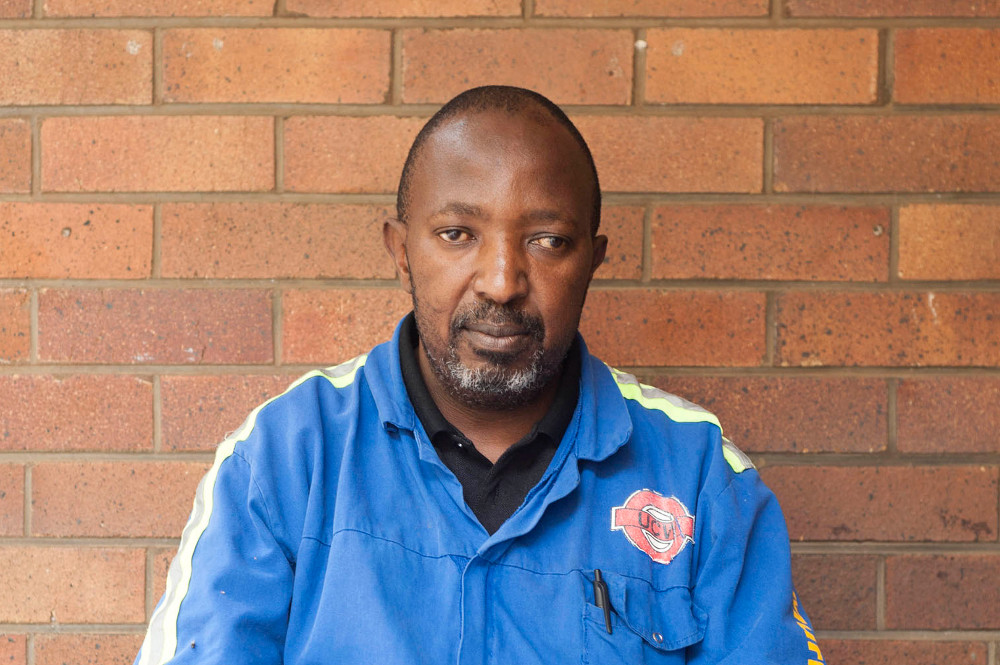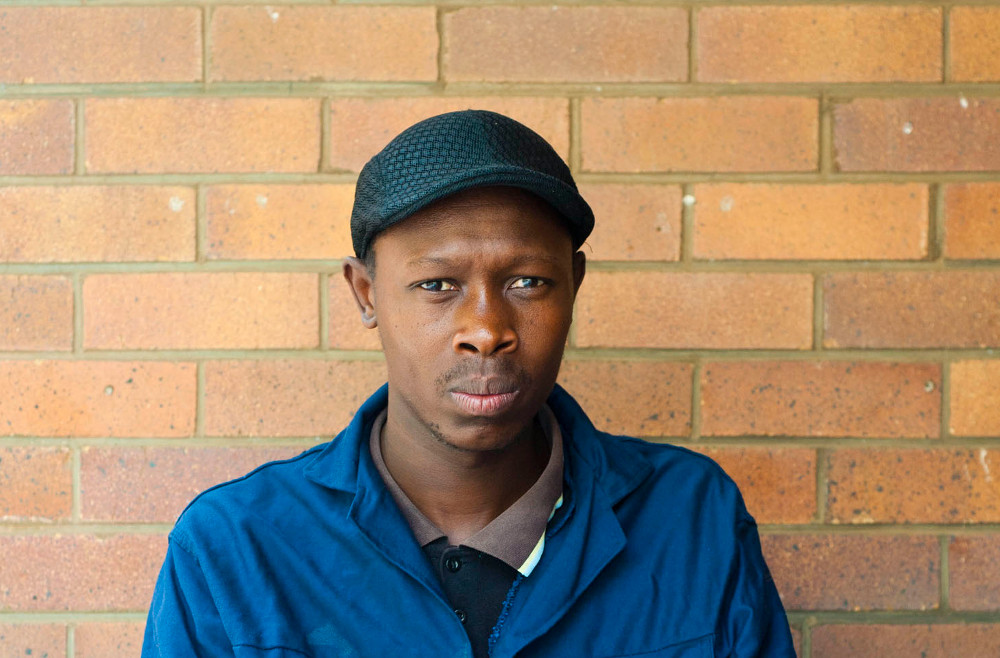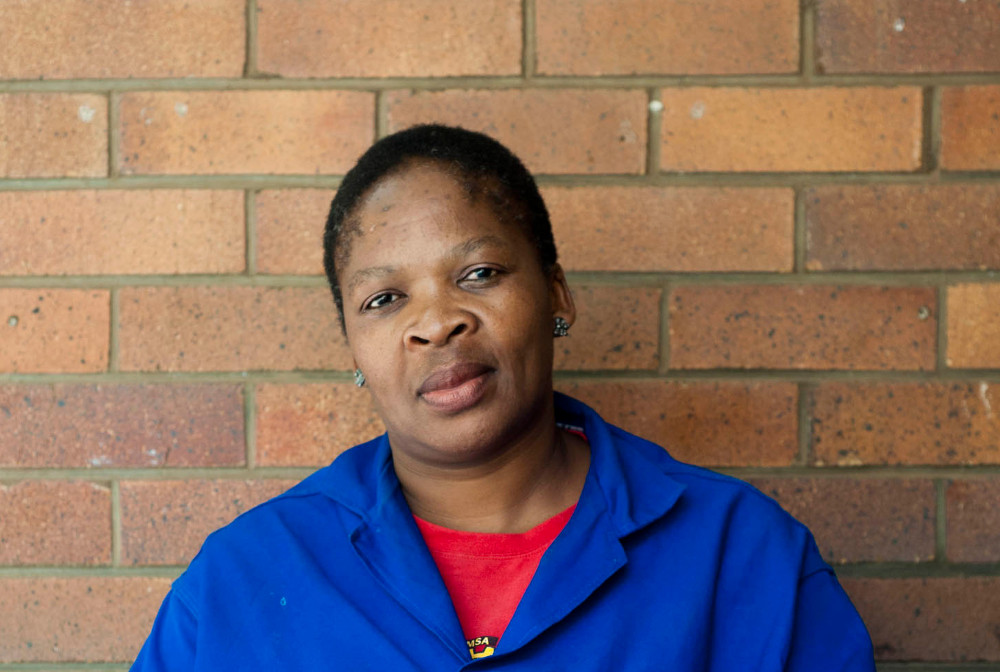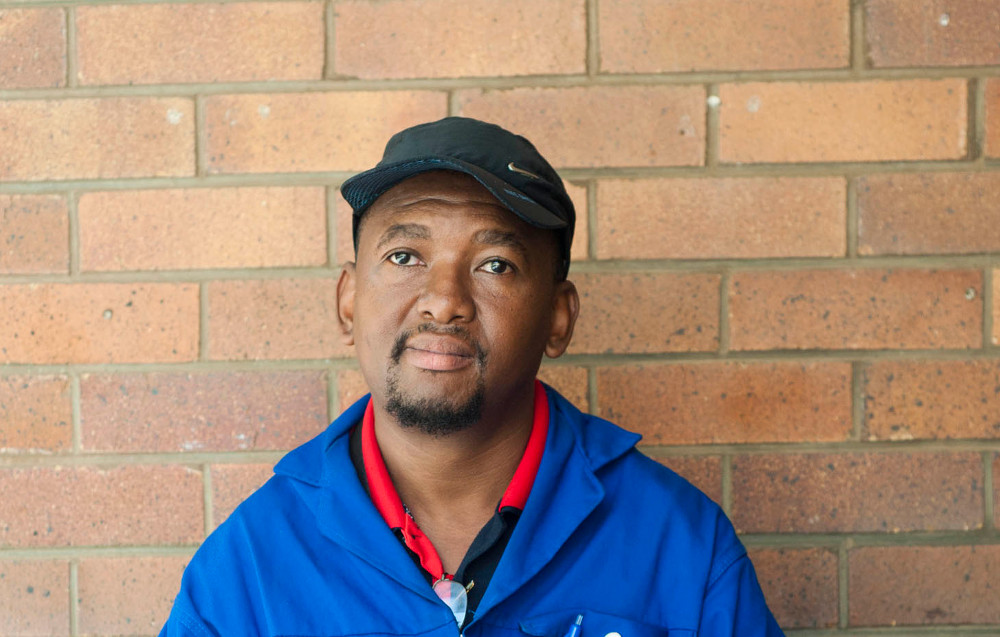There are 648 Numsa members among Commuter Transport and Locomotives Engineering's 712 employees.
A dark cloud hangs over National Union of Metalworkers of South Africa (Numsa) members at the Commuter Transport and Locomotives Engineering company in Nigel. Not only has their union been expelled from the mother body, Cosatu, they also face the threat of retrenchments that are likely to slash roughly 33% of the company’s workforce.
The union has 648 members in this company of 712 employees. Perhaps, understandably, their perspective in interpreting the happenings in the tripartite alliance is coloured by this imminent fate. “The issue with the expulsion of Numsa is obviously that Numsa is fighting for the rights of the workers,” says Nthanthane Mthimunye (49), a tall woman in work overalls with closely cropped hair.

Joseph Mothobi. (Photos: Delwyn Verasamy, M&G)
“For example, in Cosatu, the fight for the e-tolls was strong, but then there was a focus on [Cosatu general secretary Zwelinzima] Vavi and the girlfriend issue. After that, the e-tolls are going forward without as much as a peep from Cosatu.
“The labour brokering issue is still there. It’s only Numsa that is dealing with it. The federation should have been assisting its affiliates in the fight to save jobs when we were facing the retrenchment of 250 people.”

Bulelani Notyhanga.
Mthimunye says there are 13 companies where Numsa organises that are facing the threat of retrenchments, feeding into the pervasive theory that the “long knives” are out for Numsa beyond its expulsion.
“The expulsion of Numsa was basically to set the stage for another pliable organisation,” says Bulelani Notyhanga, a 30-year-old welder originally from Mthatha. Notyhanga is alluding to the formation of the Metal and Allied Workers Union of South Africa by former Numsa president Cedric Gina. Workers interviewed at the plant by the Mail & Guardian scoffed at the prospect of joining the union, saying they “were not clear of its politics”.

Nthanthane Mthimunye.
It was the issue of leaving the ANC that drew equivocation.
“I’ll keep voting for the ANC until they do the right thing,” said storeman Joseph Mothobi (49). “They managed to make changes that our children benefited from. The United Front thing could work if there’s a good explanation, especially for us as the working class.”

Mfanelo Somfaka.
For Simphiwe Mfaneko, the expulsion from Cosatu has been “a blessing in disguise” as he believes it has given communities a renewed sense of agency. “We, as the United Front, have been marching left, right and centre with communities. In Tsakane, the only sign of ‘development’ are malls. There are still shacks with no toilets and electricity.”
His colleague, Mfanelo Somfaka (42), added: “I’m in the ANC, like most people. It’s a few people that have brought the movement into disrepute. But then, as Mandela said, if the ANC deviates from the Freedom Charter, we must do to it what we did to the apartheid government. Right now this company is retrenching. Where is Cosatu and this government’s talk of creating jobs?”